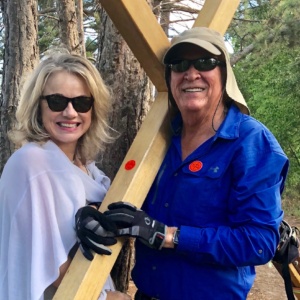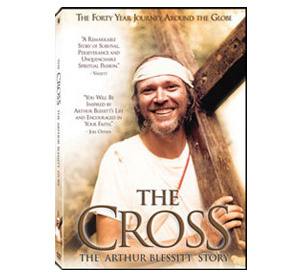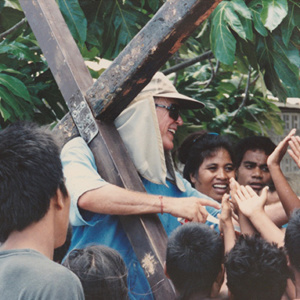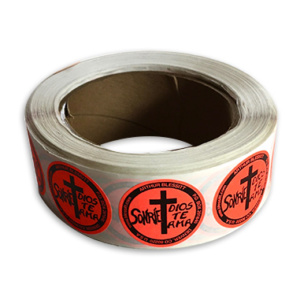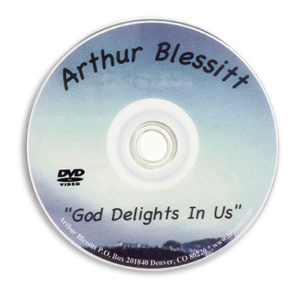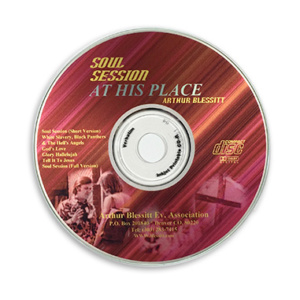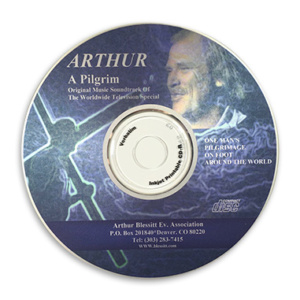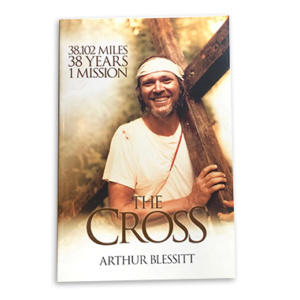BRIGHT LIGHTS, DARK CORNERS
In the months it took to locate a suitable building, I continued to explore the complex world of the Boulevard. The Mother Lode the Boulevard proper runs from the edge of Hollywood to the tip of Beverly Hills. The major veins are LaCienega, Santa Monica and Beverly Boulevards, Melrose and Fairfax Avenues, and scores of small streets and cul-de-sacs that zigzag and crisscross the major arteries.
The Boulevard is a microcosm, unique, many-layered, and kaleidoscopic. Surprises lurk everywhere, most of them disappointing.
It is jungle and sophistication. Violent, rarely kind. Greedy, seldom generous. Razzle-dazzle and tomb-quiet. Above- and underground. Luxurious and indigent. Formless and highly structured.
Once the tourists came to worship their false movie-star gods, Now they come to see the hippies, clucking their disapproval as they drive by. Some of the tourists get out of their cars and make the scene, but their contact is superficial.
Few know the Boulevard’s real character and its sewer society. The Boulevard habitues are all doing their own thing, and Christ is a stranger. Virtually no one considers Him part of his bag.
Some of the Boulevard’s people and places, some of its bright lights and dark comers:
The weekend, after five, and penthouse hippies arrive in jags and Cads, wallets bulging, wearing forty-dollar hip-hugging slacks, thirty-dollar multi-colored shirts, seventy-five dollar Indian leather jackets, and seven-dollar scarves. They live in affluent Westwood, Pacific Palisades, or the Hollywood hills. They’re young, successful, long-haired TV directors, writers, sons of politicians or movie stars. They have the bread to hit the plusher spots, the Factory discotheque, P.J.’s on Santa Monica, or Sneaky Pete’s. They go slumming at The Experience and other places where the rock is acid-hard. They eat at Theodore’s with the late night Hollywood crowd. They identify with liberal causes, say they feel empathy with the kids. They are cocktail hippies — three parts straight, one part hip. Part of the scene, they know, is turning on. They usually use pot, with an occasional trip on downers, though they may experiment with speed or acid. No matter how stoned or drunk, they are almost never hassled by the police. Their clothes and cars are too expensive.
At the corner of Doheny and Sunset two men cross against the light in full view of a motorcycle policeman. The dude in a business suit is ignored. The kid with the Harpo haircut is busted.
In souped-up Mustangs, Camaros, and Firebirds, rock music blaring from their car radios, the teeny-boppers swarm in from all the middle-class suburbs, including Anaheim, Pasadena, Granada Hills, and Burbank. Thirteen to eighteen years old, they stash their wheels several blocks from Sunset Boulevard because there’s no parking on the Boulevard from 8 p.m. to 2 a.m. The big part of their trip is walking the Boulevard, ad jibbing the night’s action.
They’re the wildest and in some ways the most dangerous of the Boulevard’s inhabitants, because they’re game for anything. Bread is of no concern; indulgent parents supply them with allowances of from ten to seventy dollars a week. Their scene is the psychedelic shops, then on to the clutch of clubs that cater to teenagers, notably Gazzarri’s and Whisky-A-Go-Go.
The typical teeny-bopper considers herself cool. In almost every case, the parents of the teeny-bopper do not know she’s on the Boulevard. She’s supposed to be baby-sitting or spending the night with a girl friend and listening to Beatles records.
Then there are the cool cats who live off chicks. These male hustlers exist on the fringes of show business. “I’m cutting a record tomorrow.” “I’m up for a part in a TV show.” “I just need some bread to tide me over.” The chicks they can think nothing of handing them fifty or a hundred dollars.
Sixteen to twenty-three years old, these chicks are practiced panhandlers. A good-looking chick with a winning personality can gull up to one hundred dollars a day. If she looks tender and innocent enough, a straight may hand her twenty dollars. She may remind him of his own daughter, but, man, she knows more about sin than the straight ever will. None of these panhandling chicks hauls in less than ten dollars a day. Some of them support two, three, or four guys. All these chicks are turned on to drugs. If she has a very expensive habit, she’ll take up street walking to support it.
Heads hawk underground newspapers along the Boulevard. You can buy narcotics with your news. The papers sell for twenty-five cent to twenty-five dollars, depending on what’s between the pages.
She greets you at the door of the massage parlor with a smile, a vision in decolletage. You’re led into a private room, where the girl, for an agreed price, will perform any act you request. The city licenses them freely the vice squad ignores them.
Twelve dollars a week buys a crash pad in a once-famous Hollywood hotel for ten to fifteen heads who meet to turn on. Other heads, who won’t waste a dime for a pad, sleep in deserted houses apartment buildings, on the ground, in alleys or bushes. These kids get busted all the time for panhandling, vagrancy, jaywalking, trespassing. Pot, speed, and acid are passed around and consumed like Life Savers. They’ll pop a pill as quickly as a straight will swallow an aspirin.
“Hi, man, how you doing?” My nightly greeting to Mescaline, a short, handsome African American in a cowboy hat. He’s been dealing on the same corner of the Boulevard for four years. His income some weeks is more than one thousand dollars. He’s never been busted.
“I don’t turn on myself,” he says. “That’s a scene for losers. I’m just a businessman.”
“How about doing business with God?”
“When I do, Arthur, I’m counting on you to give me a personal introduction to that big cat.”
I promise myself that someday I’ll win Mescaline for the Lord.
The over-forty Lions, Rotarians, and Kiwanians doctors, lawyers, Sunday school teachers, church deacons, Boy Scout leaders, supporters of the Y and the United Crusade — are out for a big night on the Boulevard. A couple of drinks and a dude of this stripe is heavy, man, heavy. He offers fifty dollars to an attractive teen-age girl. Back in Toledo or Cheyenne or Evanston he’s a pillar of respectability. He tithes to his church and agrees with his minister that today’s young people do not have the moral fiber and character of their parents.
Big-name movie and television stars make the Boulevard scene every night, many scouting for new shack-ups. A surprising number are strung out on drugs. They don’t buy their stuff from street dealers; it’s prescribed by their M.D.’s and psychiatrists. They take uppers to get through their nerve-racking days, downers to lull them to sleep. There are dozens of famous faces destined to end their lives in drug comas, as did Marilyn Monroe and Judy Garland. Narcotics are dulling and heightening the senses of the Hollywood crowd in epidemic proportions. Pot parties in Beverly Hills and Bel-Air are common. Acid and speed are replacing the martini and mixed drink as the favored way of fighting off reality. Along the Boulevard a number of stars can be seen freaked out, but because they’re celebrities they’re never busted for taking the same stuff the kids do, nor are they ever searched on suspicion of possession.
She’s smoking pot openly on the Boulevard, a nineteen-year-old girl who says she’s a former model.
“Do you know Jesus in your heart?” I ask. “I groove on Jesus. Satan, reincarnation, Taoism, astrology, Dr. Timothy Leary. What turns me off is The Man, my folks in Cleveland, and a steady job.
“I’m getting married next week. We’re going to make the honeymoon scene hitchhiking across the country for two years.”
“And then?”
“I hope I’ll be dead.”
“Let me tell you how Jesus can give you everlasting life.”
She laughs from a mouth pitted with cavities. “Do you think Jesus would give me all the pot I want in Heaven? Man, that’s a trip that would be the ultimate groove.”
Before I can talk further with her, she turns and lopes off. I run after her, pressing a tract and a New Testament into her hand. Perhaps when she comes down, the message will touch her.
In the midsection of the Boulevard is a bar that looks like ten thousand others, only this one is filled with ladies of the night and small-time underworld hoods, any one of whom would murder you in a minute. I move among the tables, distributing tracts. Not a soul shows a spark of interest.
“Mr. Blessitt, thank God I’ve found you.” She’s a matron of perhaps forty-two. She presses a picture of her teen-age son into my bands. “Have you seen Paul?”
“No, ma’am, but I’ll keep my eyes open for him.”
She says without hope, “He was released from Camarillo (one of California’s state mental hospitals), and he ran away four nights ago. The psychiatrist said he couldn’t do anything with him.”
“What did the psychiatrist recommend?”
“A minister.”
Dealing on the sidewalk is a sixteen-year-old girl I’ve been trying to win for Christ. Her post is in front of The Experience, a nightspot for teenagers. She’s selling reds three for $1, six for $1.75, and she tells me she’s made $150 tonight. Her every move is watched by three men, the men for whom she’s selling the stuff. Her cut is supposed to be 20 percent, but chances are she won’t collect. They’ll probably gang-rape her, toss her into the street, and pick up another chick from the plentiful supply always on the Boulevard to deal for them tomorrow night.
“Arthur, can I bum some bread?” she asks. “I haven’t eaten in two days.
The Blue Grotto is a bikers’ hangout. The big room is filled with leather-jacketed, rough- hewn guys, some of them in their thirties. Their old ladies are all young, but already losing their looks to dissipation. I talk with a fourteen-year-old runaway who’s on the scene for the first time. She won’t go home; she won’t accept Jesus; she’s already a speed freak and proud of it.
The place is run by one of the most charming men on the Boulevard. His name is Foster and as I move into his cubbyhole office he’s reading the New Testament. He’s wearing a tribal shirt with a large glass ruby pinned to his Afro-styled headdress.
Foster keeps the place going as a refuge for the bikers. He does what he can to help them. The place barely shows a profit but Foster is a religious man and this is his mission station.
The room is quiet tonight. The bikers are hunched over chess tables in drug stupors. Once the bikers turned on only with booze, but now they’re also hung up on drugs.
The previous evening two bikers were shot to death on the sidewalk outside Foster’s place.
One of the most prosperous businesses on the Boulevard is the psychedelic shop. There are dozens of them. Some are owned by three or four hips who’ve pooled their money. Others are secretly owned by straight businessmen. A lot of dealers hang out in the shops, and the owners will shoo them off unless they pony up a commission on their sales.
The shops are popular with tourists as well as the hippies. Fifteen-cent posters bought wholesale are retailed at $2.00 and up. The posters are profane or mocking.
A book is on sale for $1.50: One Hundred Ways to Prepare Pot. Among the recipes are instructions for preparing “pot fudge” and “brownie pot.” The book is not a joke; the ingredients, including the grass, are specified as meticulously as in a Fannie Farmer recipe.
Junk jewelry, rings and bracelets mostly, go for up to $50! Beads are a popular, less expensive item.
The biggest trade is in “roach” clips, which allow pot smokers to groove down to the last puff. Marijuana pipes, from $15 to $100, sell briskly.
Every night the psychedelic shops are jammed with patrons.
Hollywood is the sodomy capital of the world. At least sixty bars along Santa Monica cater solely to gay guys. One is owned by a famous singer who has had three highly publicized divorces.
There are some gays who act effeminate, but the lingering myth that you can spot a gay person by dress or speech is not true. Doctors, attorneys, men in every walk of life, people in these bars.
At one spot there are three stages and the music is loud, the lights hot. There is no air- conditioning. On most nights you can barely find standing room.
Sheriff Peter Pitchess in a speech: “I’m not about to warn you that organized crime may move in (to Los Angeles). They are already here. They have established a strong foothold, and if that doesn’t shock, it should.
“We must recognize that a vehicle presently exists that is bringing big crime to our area and enabling these criminals to establish themselves. We must accept the fact that Los Angeles is the smut and pornography capital of the world.”
Profits for the owners are high. A magazine produced for less than fifty cents sells for five dollars. The biggest customers are the legion of dirty-book freaks, all straights. One smut shop, next to a theater that features stag films, has a trade that is so brisk it is open twenty-four hours a day.
Most of the books and magazines feature fresh-faced young girls. How do the agents of the vast mail-order smut distributors recruit and convince the girls to pose?
Dozens of girls have told me similar stories. They are approached on the Boulevard and asked if they would like to work as models. Desperate, alone, broke, they are runaways to whom the offer of one hundred dollars is a fortune.
A new wrinkle in ladies of the night has been devised by the ever-ingenious purveyors of sin: brothers that mask themselves under the pseudonym of “model studios.” They pepper Fairfax, LaBrea, and Santa Monica and have even spread to the stodgy straight bastions of Pasadena and Inglewood.
One chilly, windy night as I make the rounds of the plushest spots on the Boulevard my mind is burdened. I’m flat broke, and the $60 for the rent on our little office is due tomorrow. There isn’t a way in the world I can think of to raise the money.
Among my witnessing stops are Frascati’s, Sneaky Pete’s, the Playboy Club, and the tower restaurant atop the 9000 Sunset Boulevard building. My last call is at Dino’s, about the fanciest gin mill on the Boulevard.
I sit at a stool at the bar. The bartender knows me. His eyes are friendly. He winks and says, “Preacher, how about a double?”
“Right.”
He serves me a large glass of water.
At a table in back of me a loud-mouthed drunk has just ordered a bottle of champagne. In a voice that carries through the room the man announces, “I’m going to burn a one-hundred-dollar bill for kicks.”
He removes the bill from his wallet, puts the flame of his cigarette lighter to it, and lets it burn until only a corner remains. The remnant of the bill is passed around the room. Everyone thinks it’s funny.
But I’m appalled.
The man with money to burn has moved to the bar a few stools from me, talking to some people.
I can’t resist walking over to him. “Sir, you’re a rich fool, and the Hell that you are going to burn in is going to be much hotter than the fire that burned your hundred dollars. People on this street are hungry tonight and you’re burning money. Ask Jesus into your soul! May God have mercy on you!”
He laughs, reaches into his pocket, and brings out a horse-choking roll of bills. He pushes back my coat and stuffs the money inside my shirt.
I fish the bills out and slap them all back into his jacket pocket. “Sir, you’ve met somebody you can’t buy. You can’t buy God’s forgiveness, and you can’t pay me off to soothe your conscience. I don’t want your money.”
I think about getting evicted from our little office the next day and know how easy it would be to accept this man’s money and let it work for the Lord. But I just can’t.
“If not money, what do you want?” he asks.
“I want you to be saved. To ask Jesus into your heart.”
I begin praying for him. The crowd gathered around is taking in the whole scene.
As I pray the man suddenly falls backward. It flashes through my mind that God has struck him dead. Women are screaming. Waiters push toward him. I kneel and feel his pulse. After a minute or so he opens his eyes. He looks at me and says, “Don’t you touch me. The power of God’s on you. I believe in God. I’m a member of the South Baptist Church in Lubbock, Texas.”
He raises himself under his own power and now seems sober.
“I don’t care what you say. You’re going to take at least a little of this money.” He peels off a few bills. “God has told me to give this to you.”
Not until I get back to my office do I look at the money he handed me.
Exactly sixty dollars!


